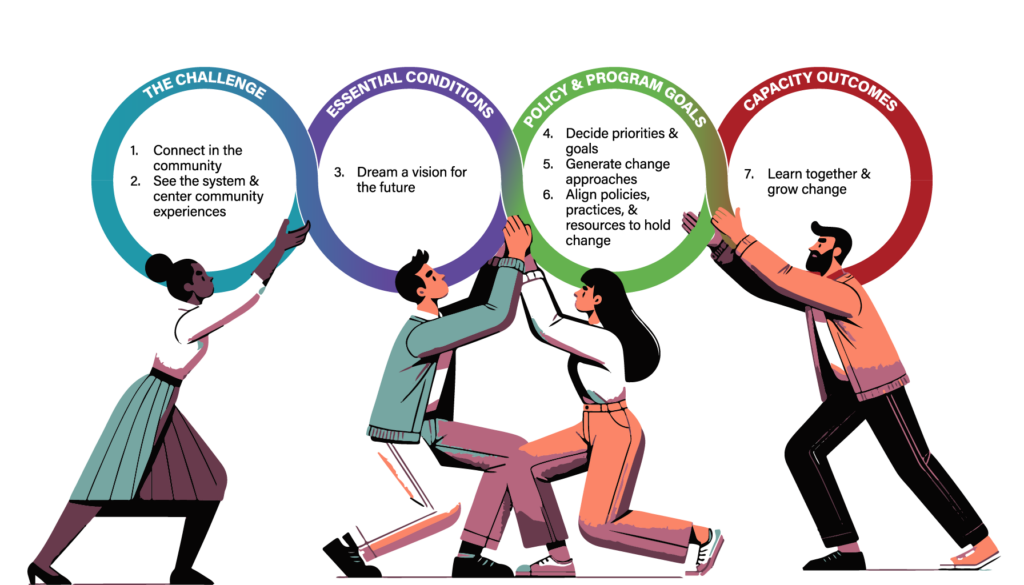Element 7: Learn Together and Grow Change
Implement routines that provide opportunities for young people, families, community partners, and system leaders to learn together about what is working and what is not as change ideas are carried out. Rooted in principles of continuous improvement, this involves co-creating meaningful and practical measures of change and working together to iterate and scale change approaches over time.
Case Story:
Castle Park Middle School
Castle Park Middle School educators prioritize relationship building to foster agency and cultivate community. However, the increased stress and burnout levels since the onset of COVID-19 began to impact educators' ability to manage the academic, mental, and social-emotional needs of students. To support these students, Castle Park partnered with the National Conflict Resolution Center (NCRC) to provide restorative listening circles, which are structured spaces for staff to share experiences, struggles, and emotions with a trained mediator.
While the main goal of the listening circles was to ensure staff could be heard, school leadership also saw the need to make changes based on what was shared during these listening circles. The school's Climate Culture Committee identified and shared common themes from the listening circles with administration, including the need for clarity around the student discipline process, better communication,and greater support in the classroom. This process helped inform the decision to pilot another whole-person initiative—Positive Behavioral Interventions and Support—to address a schoolwide increase in challenging classroom behaviors. Listen to this case story clip to hear Climate Culture Committee member Melissa Rains talk about the team's process of participatory continuous improvement through qualitative data gathering and analysis; sense-making; and generating, testing, and iterating change ideas.
Reflection Pause
- Are feedback loops with the community in place to inform the continuous improvement of the system?
- Are change approaches being tested, iterated, and scaled over time? Are ongoing learning routines informing the iteration and expansion of change efforts?
- Are young people, families, community partners, agency staff, and system leaders engaged in shared decision-making about what change approaches are adapted, adopted, abandoned, or expanded?
Resources to Explore
- Participatory Action Research and Evaluation: An approach to community-driven research, evaluation, and social change
Valdez, A., Cerna, R., & Hashmi, S. (2023). Participatory systems change for equity: An inquiry guide for child-, youth-, and family-serving agencies. California Center for School Climate & Center to Improve Social and Emotional Learning and School Safety. WestEd.
CCSC Audio Gallery. WestEd. https://ca-safe-supportive-schools.wested.org/resource/engaging-the-school-community-in-the-transformation-process/

